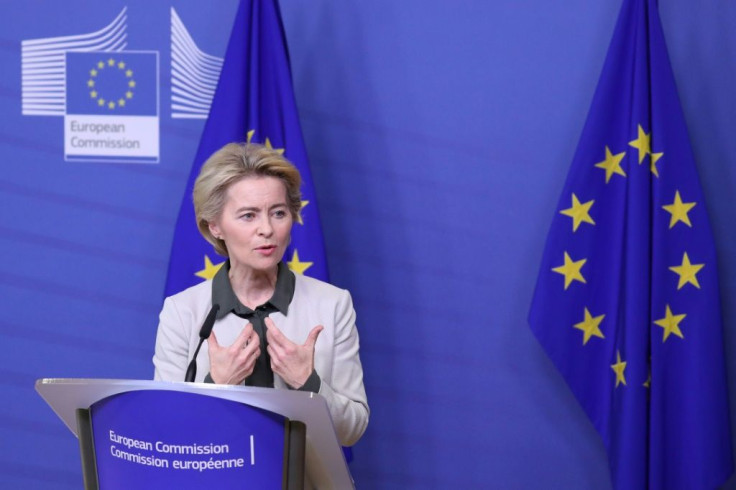EU Urges UK To Go For Trade Deal, But Says 'Fine' If Not

The EU wants a uniquely close post-Brexit relationship with the UK, but is "fine" if London opts to walk away without one, European Commission chief Ursula von der Leyen said Tuesday.
The blunt language mirrors that being used by Britain, which formally left the EU two weeks ago but which still trades like a member under a transition period ticking down to the end of this year.
The government of British Prime Minister Boris Johnson insists it will not seek to extend the transition. This week it stepped up warnings to British business to prepare to operate outside the single market from 2021.
At the same time, the EU is putting the final touches on its negotiating mandate, which is to be fixed on February 25 ahead of talks with the UK scheduled to start from next month.
Speaking to the European Parliament, von der Leyen responded to Britain's moves bracing for a possible no deal on trade by saying: "If this is the British choice, well, we are fine with that without any question."
She added however that "I personally believe that we should be way more ambitious" and reiterated Europe's conditions Britain would have to abide by if an accord were to be struck.
The EU insists on a "level playing field" so that Britain does not try to get an unfair trading advantage by getting rid of costly EU standards on labour, the environment and taxes.
It also wants oversight on UK state aid decisions, and says giving EU fishing boats continued access to British waters is crucial for a trade deal.
At the same time, the EU's chief negotiator Michel Barnier warned that Britain's big financial sector would lose its automatic right to operate in EU countries, and checks would be carried out on British goods.
"Brexit cannot be business as usual," he told the MEPs. "Brexit has mechanical and logical consequences. We have to find a new way of cooperating with them, and we are seeking that."
In the lead-up to Britain's January 31 exit from the EU, London had said it wanted an ambitious and comprehensive accord with the European bloc.
But since then, Johnson has dialled back on that scope and his government has signalled it is willing to accept trade friction as the cost of exercising sovereignty.
A senior British minister, Michael Gove, on Monday said EU imports would from next year face the same checks as those from the rest of the world.
On Tuesday, Britain's finance minister, Sajid Javid, spread much the same message, writing in London's City AM newspaper that "from next year, we will have the freedom to make our own rules outside the constraints of the (EU's) single market and customs union".
He also said "there will be differences" between future British financial regulations and EU ones -- though he repeated a desire for regulatory "equivalence" under which British financial firms would be deemed compatible enough to maintain access to the EU market.
Barnier, however, warned Britain against harbouring any "illusion" over financial services.
One way Johnson's government is preparing the ground for a possible no deal is to say that it would be happy trading with the EU on the same terms as Australia -- a country currently striving to work out a trade accord with the bloc.
"I was a little bit surprised to hear the prime minister of the United Kingdom speak about the Australian model," von der Leyen said.
"But the European Union does not have a trade agreement with Australia. We are currently trading on WTO terms."
© Copyright AFP 2024. All rights reserved.





















